Eizer L'Shabbos
Watch the new video here
אַשְׂכִּילָה בְּדֶרֶךְ תָּמִים
Chabakuk Elisha commenting on The Variable - Does It Make A Difference?
Mystical Paths: Moshiach's Alley
 I will be first in line to buy a copy of this new book!
I will be first in line to buy a copy of this new book!
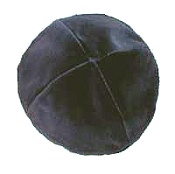 (Picture Courtesy of AllJudaica.com)
(Picture Courtesy of AllJudaica.com)
Covering the head has become significant and valuable, not because it has any inherent meaning but rather as a conventional sign of belonging to a certain group of people and of a commitment to a certain way of life.
Rabbi Dovid Sears, Director of the Breslov Center for Spirituality and Inner Growth, and author of many books on Jewish thought provided the material for the posting below.
I believe that G-d can turn a triangle into a square -- for G-d's ways are hidden from us.
(Rebbe Nachman of Breslov)
From an e-mail from my mother today:
From Nishmat (via Yitz):
A Whispering Soul writes:
One who visits a sick person relieves him of one sixtieth of his illness.
(Talmud - Nedarim 39b)
A Simple Jew asks:
I have some extra copies of Rabbi Lazer Brody's Emuna Series CDs including:
The Gate of Salvation (1 copy)
Take Me Home (1 copy)
There's No Despair In the World (1 copy)
The Only Address (1 copy)
If you would like one of these CDs free of charge, send me an e-mail with your mailing address and I will mail it to you. Individual CDs will be given out on a first come, first serve basis.
Each Emuna Series CD is very inspiring and I encourage everyone to take a look at the rest of this series on Lazer Beams (see the sidebar there for more information.)
UPDATE: All 4 CDs have now been given out.
Man must toil and do with both hands, and the Holy One, blessed is He, will send His blessing.
This Shabbos, 2 Elul, is the yahrzeit of my great-grandmother Mindel bas Tzvi Hirsh. Mindel left the shtetl of Kosovo-Poleski (today Belarus) when she was 18 years-old and made her way to Bremen, Germany were she boarded the S.S. Stuttgart. On December 5, 1895 she arrived at the port of New York and later settled in Philadelphia. There she married a Jewish immigrant from Sudilkov, Ukraine in 1902 and later had a family of five children.
A 1959 shul bulletin provided this description of my great-grandmother:
"She runs he own home, works in her beautiful garden, does her own shopping, attends all the meetings of all her organizations and is a regular attendant of the Late Friday Night Services, as well as all the Holiday Services. All these things she does because she wants to and because she enjoys them. She also has a very lively sense of humor and an air of dignity and stylish, humility and awareness that enables her to mingle with people of all ages and from all walks of life."
Mindel passed away in 1972, 111 days before I was born.
33 years later, my youngest daughter was born and we gave her the "middle" name Mindel in my great-grandmother's memory.
ul. Kosciuszki
(The street Mindel lived on in Kosovo-Poleski)
Shabbat afternoon is a time to rise and realize what Creation can be before stepping back down into your body, ready to live that promise. It is the time G-d commits to creating the universe for another week.
Reb Nati: Illegally Entering The Kever of a Tzaddik
Shechem.org: Background & Pictures
Tsel.org: Kever Yosef Photo Essay
Be simple with Hashem, your G-d.
Being Simple by Rabbi Shimon Posner
In the process of my genealogical research, I received an e-mail from someone in Israel whose family turned out to be related. In the course of our ensuing e-mail communication I learned that I was the fourth cousin of the Murder Inc. gangster Irving "Knadles" Nitzberg.
When Elul comes around, I feel the fear in my shoulders.
After we had some discussions about hisboydedus and learning Likutey Moharan, I figured out that some consider this issue pretty clear and easy to understand, while others (like myself) find it hard and complex and not obvious from written words themselves.
So I decided to refresh for myself the issue of how to approach learning Chasidus in general, and Likutey Moharan in particular.
Before speaking about it, it worth to look at one piece from hakdomo to "Likutey Amorim" of Mezheritcher Maggid zy"o written by his close talmid – Rabbi Shloyme Lutzker zy"o. You'll see how it is relevant a bit later.
In the beginning, Rabbi Shloyme Lutzker zy"o describes the chain of hidden mesoyro (of Kabolo and Toyras hasoyd) how it came from Moyshe Rabeyny o"h up to Rash"bi and other early mekubolim, until it reached the Rama"k and Ariza"l and then to Baal Shem Tov and his talmidim zy"o. And regarding the Ari haKodoysh he says:
However, Rav haKodoysh hoAri za"l being required to extend his explanations on his every word in details of details, every world by itself, and entities called partzufim, which are plesent but very long drushim, which consume [a lot of] time (as explained in introduction to seyfer hakodoysh Eytz Chaim, that them (Ariza"l's drushim) are just roshey perokim (gists), as one who "gazes through a crack", and [they are] revealing "tefach" and concealing thousands of "amoys"), he wasn't able to extend his speach more, in separating gashmius from Him, Yisborach, but also he didn't need it, because he revealed [all this] to his talmidim hakdoyshim, who were already fulled with wisdom and extra understanding and learned Daas from sforim hakoyshim of Eloyki Moreynu hoRama"k za"l...
Just note a chasidic view, that in order to understand Ariza"l throughly one has to know Rama"k very well, and that Ariza"l spoke revealing a tefach, and concealing thousand of amoys (a very colorful metaphor if you think about it).
Now let's look closely to introduction to Likutey Moharan written by Reb Noson zy"o. Here some pieces from it:
Both (qualites) are found in this holy work as one, because it reveals and conceals <...> and even though these words are revealed, and can be understood a bit according to their simple meaning, nevertheless there is more inside... because there is still an inner aspects (pnimius) of the words, concealed from everyone's eyes... because concealment is a revelation as explained in Kisvey Ariza"l...
And one who will desire to look at this [seyfer] with true eye will see himself "until where these words reach". And one whose heart is "flat" and who doesn't desire the understanding of kdusho of this seyfer, these words wouldn't help him...
And one who desires to taste the honey nectar of these pleasant words, has to contemplate deeply with true eye with deep penetration and thorough "grinding" to understand the words according to their [true] meaning, to the best ability of his mind....
...Hidden and concealed and enclosed in it are very lofty things, that aren't even mentioned inside openly, but only in a way of remez and soyd. And all Kisvey hoAriza"l, and maymorim of Zoyhar haKodoysh, and Tikunim and all ways of Kabolo hakdoysho, all as one are included in the words of this seyfer hakodoysh.
Reb Noson's introduction gives a very good explanation on the way Liktey Moharan is composed. It is megale and mechase at the same time. And it includes all ways of Kabolo. And we have to note that it includes the ways of Baal Shem Tov and his talmidim in particular! Compare what Reb Noson says, to the words of Reb Shloyme Lutzker above. Rebbe himself also said, that he brought his words to this world to the best of his ability (as we saw about Ariza"l as well). And you shouldn't go too far to understand, that Rebbe didn't have to explain to his talmidim every small detail of Chasidus, because they were very well versed in sfroim of Baal Shem Tov's talmidim (and those of the talmidey hoMaggid available at that time), as Ariza"l's talmidim were well versed in the sforim of the Rama"k.
This might differ Breslov from Chabad for example. While Chabad tends to be a self sufficient system to some degree, Breslov requires you to know a lot, to understand Likutey Moharan, and especially of Baal Shem Tov's teachings and Kabolo. That's how the Rebbe presented his teachings. We see it all the more from the Tcheriner Rov ztz"l who according to Breslover mesoyro composed "Derech Chasidim" and "Loshn Chasidim", for the sake of strengthening the learning of talmidey Baal Shem Tov and talmidey hoMaggid amongst Breslover chasidim, so these Toyroys woulnd't fall out of the focus, and really because they are more than relevant to understanding Likutey Moharan itself.
From here you can see well few important points:
1. The Rebbe speaks in a half hidden way (you can assume that hidden part is qualitively much more than revealed as in Ariza"l's case).
2. Reb Noson says, that one should learn Rebbe's words to the best of his ability, and not to be contended with superficial level.
3. In order to understand Likutey Moharan seriously one should know really a lot, and in teachings of Baal Shem Tov and his talmidim in particular.
After all this, you can see, that regarding hisboydedus all this can be applied as well. And this issue (even though it of course has a simple practical implications as well as Reb Noson says) is serious and deep, and one should really work hard to understand it to the best of his ability.
I learned the following significant lesson from my teacher [the Baal Shem Tov]: In all physical and spiritual suffering, man should consider that within this suffering is G-d, blessed be He, though in a disguised form. When man becomes aware of this, the disguise is removed, and the suffering and evil decrees are nullified.
Last Monday afternoon my wife brought the kids out to a nearby park to play with some friends. When they returned home, my four year-old daughter was exhausted and agitated at something causing her to act out and misbehave. When my wife put her in a room and closed the door so she could calm down and unwind, my daughter laid on the floor kicking the door and wall until she put a small hole in the drywall.
Living in this world may be compared to a maze, where there are numerous paths, many of which are confusing and interlacing, and all of which appear similar. The goal is to reach a portico in its midst. Some of the paths indeed lead to the goal, while others are deceptive and lead away from the goal. However, one cannot tell which is which, unless one has successfully mastered the maze and reached the portico. Someone standing on top of the portico has a view of all the paths, which are true and which are deceptive, and he can call to those who enter the maze, "Follow this path," or "Avoid that path." One who heads this guide will soon arrive at the goal, while one who persists in pursuing his own intellect will blunder and may never arrive at the goal.
(Rabbi Moshe Chaim Luzzato)
I encourage everyone to check out Neil Harris's site Modern Uberdox and be sure to read his Midos series
Here is one story Neil shared in this series:
"Two summers ago, my family and I went to Upstate NY. We decided to drive into Woodbourne and get something to eat. I, of course, wanted to go check out the seforim store (which happens to rock). As I walk in, I say hello to the owner and ask if he’s having a nice day. “Baruch Hashem,” he replies.
We proceed to browse around and get a few items. A kippah for my son, a few kids books, a believe I got an Artscroll Mishnah, and a copy of the Chofetz Chaim’s Lesson a Day (a real deal for only $7.99). As I’m look around the store I notice a father with his two high school sons standing by the cash register. I see the father look at me and then hear him say, “People like him come in to a store like this? What would he want with seforim?”
Note: I was wearing a polo shirt and khaki pants.
Then the owner says to this man and his sons, “Yes, people like him shop here. And guess what? When he walked in, he said hello to me and asked how I am. When you came in you didn’t say a word to me. I’d take a customer like him any day.” This guy is my hero.
What this man and his kids were wearing and where they fell on the hashkafa chart doesn’t matter. You can look decent and be a mensch or you can go “casual” and be a mensch. Just be a mensch."
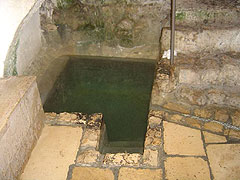 (Photograph courtesy of Sofer of Tzfat)
(Photograph courtesy of Sofer of Tzfat)
A Simple Jew asks:
In Degel Machaneh Ephraim, Parshas Balak, the Degel relates a story that probably occurred while the Baal Shem Tov was visiting Istanbul on his journey to Eretz Yisroel:
"I heard from my grandfather that once he went to a mikveh in a place amongst Arabs. When he returned from the mikveh he was afraid of touching an Arab. Later, he heard two Arabs nearby talking to each other and telling each other to be careful from touching that impure Jew."
What do you think the Degel is trying to teach us with this story about the Baal Shem Tov?
Rabbi Dovid Sears responds:
In its context in Degel Machaneh Ephraim, the story comes as an aside to a d'rush about the necessity of Israel remaining separate from other nations, so that they should not emulating the ways of those who do not follow the derekh ha-Torah. If so, they would be denounced by the accusing angels, who appeared before the Divine Throne at the hour of yetzi'as Mitzrayim protesting, "These [meaning the Egyptians] are 'ovdei 'avodah zorah, and so are these [meaning the Bnei Yisrael]...."
On the face of it, the Baal Shem Tov's great merit caused his wish to not be touched to be reflected in the Arabs' aversion to touching him for their own reasons -- which mirrored his. All this was min ha-Shomayim, and follows the rule that Hashem watches over his tzaddikim with a special hashgochah.
The fact that the Arabs had their own ideas of tumah and taharah seems to be another example of "zeh le-umas zeh 'asah Elokim," i.e. that Hashem created a universe in which the holy and unholy are parallel structures.
Another example of this idea is Rabbi Nachman's story, "The Master of Prayer," in which the inhabitants of the Land of Wealth create a religion that parallels the rites of the Beis HaMikdosh, complete with "animal" sacrifices that consist of poor people designated as animals, whose depleted bank accounts have caused them to lose their human status; prayers directed to human "gods" who have gained such status by amassing fortunes; and laws of ritual purity based on wealth. Of course, all this is satirical; yet it has profound depths of meaning, too.
As for why the Baal Shem Tov had such a concern in the first place, we know that like other kabbalists the Baal Shem Tov was particular about using the mikveh, not just because of the chumrah of takanas Ezra, but for spiritual reasons alone. He attained certain mystical perceptions both when he was under the water and afterward, as a result of the state of taharah that the mikveh produced. It seems most likely that this is why he was particular about who touched him.
UDATE: Addition from Rabbi Dovid Sears:
This story should not be construed as an expression of hostility to Arabs or other non-Jews. See the section "A Light Unto the Nations" from the anthology "The Path of the Baal Shem Tov," pp. 85-86, for a few entries about compassion and respect for other nations in the teachings of the "Father of Chassidus."
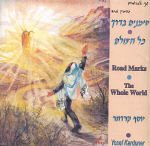
Even the pouch that holds the tefillin is holy. If it falls to the ground, even by mistake, you must pick it up immediately and kiss it. And a Jew who puts on those tefillin - how much more is that person holy!
Yossel Kvetch commenting on Trapped In The Lower Levels - Jewish Heavy Metal:
Another question should be asked: What constitutes "good" Jewish music as opposed to "bad" Jewish music?
The beauty or shvachkeit could be in the "Jewish" aspect, or in the purely musical aspect.Good Jewish music should be "good music" by any standard, just as l'havdil good Irish music or good Indian music or good American folk music should all have the creative ingredients that move people deeply.
Another possibility: you could have well-performed expressive creative music with well-sung Jewish lyrics, but if the music does not have any shaychus to any Jewish musical tradition, Chassidic / Klezmer / Andalusian/ Baghdadi / Yemenite, etc. -- it is still open to criticism.
Kol she'kein, if the instrumental and compositional aspects are mediocre imitations of American pop tunes, have no shaychus to authentic Jewish musical mesorahs, AND the Hebrew lyrics are really just cliches that have nothing to do with the feelings expressed by the song... l'moshul "Ben Bag-Bag Ben Bag-Bag Omeeeeeer..." or the fifteen year old driven-into-the ground hack rock fiasco "Mashiach Mashiach Mashiach" featuring its syncopated Las Vegas arrangement still performed nightly by out of work club date musicians at frum weddings.
The very fact that such low music ever became popular in our communities is a bizayon, even if the entrepreneurs with the diamond pinky rings are mostly to blame.
But the "real" Jewish music defies death and despair.
Just enter any Chassidishe shtibel on Shabbos, when instruments are forbidden, and hear the olam sing!
Sincerely,
Yossel Kvetch
PS: After that article in the Jewish Observer a decade ago, things only got worse. The real problem is that frum culture became so superficial and materialistic, and this is why our music today sounds the way it does.
It is a portrait of our matzav ruch'ni b'ikvasa d'meshicha -- just as the music created in the heyday of Chassidus was a portrait of the Jewish spirit of those generations.
Our music reflects our values, and even more our state of mind.
My good friend Ilán in Buenos Aires sent me an e-mail last Monday inquiring whether he will get a chance to meet me in Uman for Rosh Hashanah. Just a few days before, Chabakuk Elisha told me that he was planning to take his sons along with him to Uman as well.
Any time we feel deeply - with sadness, joy, or even business concerns - we are dealing with the soul.

Music has a tremendous power to draw you to G-d. Get into the habit of always singing a tune. It will give you new life and send joy into your soul. Then you will be able to bind yourself to G-d. It is especially good to sing on Shabbos and Yom Tov, and at a wedding celebration.
From NachumSegal.com:
Nachum Segal and Yoni Lipshutz discussed the conditions in the Northern Israeli city of Tsfat, in light of the current cease-fire. Yehonasan called in from Jerusalem where he and his family have been residing temporarily. They spoke about the over-all frame of mind of Tsfat residents, how people are dealing with all the destruction that Tsfat has endured, and how people hope to proceed for the time being. To listen to the interview, click here.
I felt horrible; absolutely terrible.
From the Eizer L'Shabbos website:
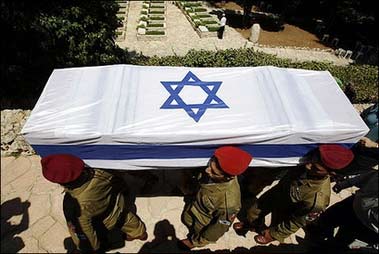
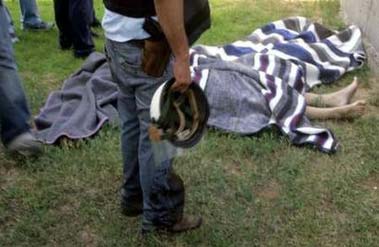
Chabakuk Elisha commenting on Circus Tent:
War. It's no simple matter at all... the loss of life... loss of limbs... the pain... the trauma... lives irrevocably changed... the destruction...
But the goal of war is to stop all those things. The ultimate sacrifice to save the future. However, if the leaders - political, military, religious, etc - are looking for a way out - if they aren't seeking complete victory - than all is for naught. Lives were lost, damaged, never to be the same - on both sides - and nothing changed. if so, why do it? Why abuse people to achieve nothing?
My perpetual fear is that there is no leadership. That the goals are to small to matter. That people are made to suffer for nothing... I hope and pray that I am wrong.
As a father I can only now appreciate:
How pained He is when His children fight.
How concerned He is when His children are injured or sick.
How much nachas he gets when His children love and help each other.
How frustrated and angry He is when His children disobey His commands and do what they want, not what He wants.
How loved He feels when His children seek to be close to Him.
Do you know why a single engine can pull so many heavy wagons? It is because it contains the steam within itself.
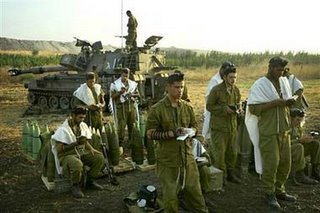 (Picture courtesy of Baleboosteh)
(Picture courtesy of Baleboosteh)